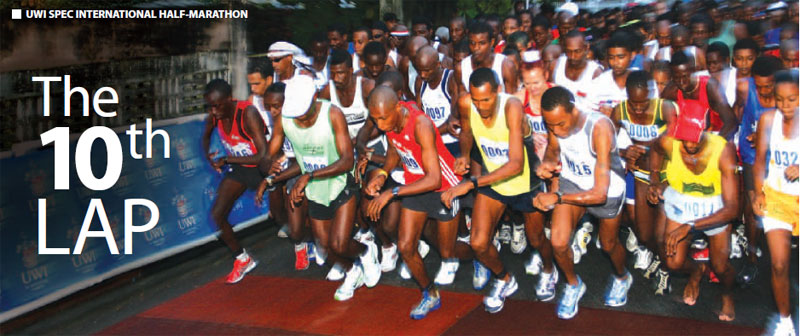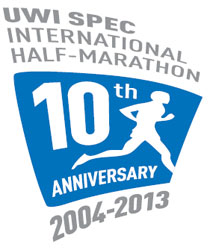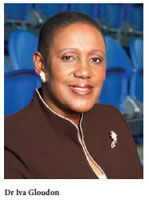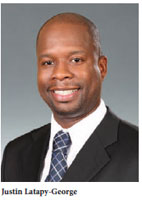 |
 |
 |
|
August 2013 |
Just about a year and a half later, on November 14, 2004, the first UWI SPEC International Half-Marathon came pelting out the heavy doors, bringing a number of innovative firsts to the region, and it has not looked back. In that first year, though the prize money was all of $100,000, and the entrants were around 300, it caught the public’s attention for several reasons. It had managed to secure the first traffic-free course in the region. The 13.1 mile journey, beginning at 6.30am, would use the Priority Bus Route up to La Resource and loop back to the finish at UWI SPEC. University students from all over were invited to attend as the idea was to involve students in the concepts of healthy lifestyles as well.
This year marks the tenth edition of that first step, and it is interesting that some, like First Citizens and Raffique Shah (though he is no longer hands-on as technical advisor), have gone the distance, throwing their support behind an event that has indeed grown to be a major international event, just as Dr Gloudon had intended. But if some things have remained the same, much has changed as well. Since then the categories for entries have grown. In addition to UWI staff and student groups, the wheelchair and physically challenged categories, there is now a team category for a minimum of 15 athletes, for instance. Over the years, as registration grew, a decision was made to cap it off at the first one thousand.
This year, as part of the special commemoration of this tenth year, a number of symbolic changes have been made. Registration will be open to the first 1010 runners; and the race, will get going a bit earlier, starting at 10 minutes to six. The focus in this tenth year is giving; giving to charitable organisations, and so, the Marketing and Communications Office team, led by acting Communications Manager, Renata Sankar-Jaimungal (who is also a Sport Management Master’s student), came up with a plan to invite 10 people to champion 10 charities and to encourage the public, as well as staff and students to pledge $10 towards one of these people and the money would go towards their chosen charity. Anyone can pledge, even as groups, organizations, faculties; anyone can, because the aim is to support the marathon and its related charities. Organizers are hoping that pledges can be made through staff deductions, bank deposits into a special account, a pledge text or by deposit at the Bursary Cashier on the St. Augustine campus. For every $10 received 10% will go towards marathon funding and the rest to the named charity. Pledges will also be taken on the day. This team, called The 10, are not there just for their looks though, they have to be part of a 12-week training programme, specially designed by SPEC. One would imagine that the training programme would have been 10 weeks long in keeping with the theme, but there is no compromise when it comes to ensuring that they are fit and ready to race, on the big day, October 27. By Vaneisa Baksh THE TEN TRAINING The 12-week training programme has a fairly intense schedule, with sessions carded for Mondays, Wednesdays and Fridays with distance running on the weekends. The Ten have been hauling themselves to SPEC as best as they can to take part in training. This includes field Fartlek (Fartlek is a training technique, used especially in running, in which periods of intense effort alternate with periods of less strenuous effort in a continuous workout), pace work and sprints. The gym sessions involve circuit training, core, legs, upper body and stretches. Of course, there are drills involved, and some hill work too. By the time race day arrives, even if they did not make it to all the sessions, The Ten are going to be more than fit and ready! |


 When UWI SPEC officially opened its heavy doors on March 16, 2003, it was already bursting with ideas for the development of sport and physical education in the region. The Director of Sport and Physical Education at the St. Augustine Campus, Dr Iva Gloudon, to whom SPEC has been like her very own child, was clear that it was going to be branded as a site for excellence in the region for that and more.
When UWI SPEC officially opened its heavy doors on March 16, 2003, it was already bursting with ideas for the development of sport and physical education in the region. The Director of Sport and Physical Education at the St. Augustine Campus, Dr Iva Gloudon, to whom SPEC has been like her very own child, was clear that it was going to be branded as a site for excellence in the region for that and more.  As she looked forward to the first edition, Dr Gloudon had said, “We wanted UWI SPEC to be tied in to the excellence in sport and physical education from an international standpoint. We don’t know of any other traffic-free road race in the Caribbean. And it is also an exciting way to have a laboratory for our students in the sport management, coaching certificate and physical training instructors’ programme. It’s an opportunity for all of these students to practise the craft in a practicum setting. And in a wider sense, to begin to brand UWI as an institution committed to having its students focused on having a well-balanced, well-rounded education.”
As she looked forward to the first edition, Dr Gloudon had said, “We wanted UWI SPEC to be tied in to the excellence in sport and physical education from an international standpoint. We don’t know of any other traffic-free road race in the Caribbean. And it is also an exciting way to have a laboratory for our students in the sport management, coaching certificate and physical training instructors’ programme. It’s an opportunity for all of these students to practise the craft in a practicum setting. And in a wider sense, to begin to brand UWI as an institution committed to having its students focused on having a well-balanced, well-rounded education.” For current director of Sport and PE at UWI, Justin Latapy-George, it has been a privilege to preside over this special edition. Latapy-George, who is also the Race Director, says the honour is also magnified by “allowing me to be a part of the University’s long-standing support of academia and Sport and PE while promoting a healthier lifestyle choice that is aptly supported by the race’s sponsors; principles that allow me to enjoy my role tremendously.”
For current director of Sport and PE at UWI, Justin Latapy-George, it has been a privilege to preside over this special edition. Latapy-George, who is also the Race Director, says the honour is also magnified by “allowing me to be a part of the University’s long-standing support of academia and Sport and PE while promoting a healthier lifestyle choice that is aptly supported by the race’s sponsors; principles that allow me to enjoy my role tremendously.”